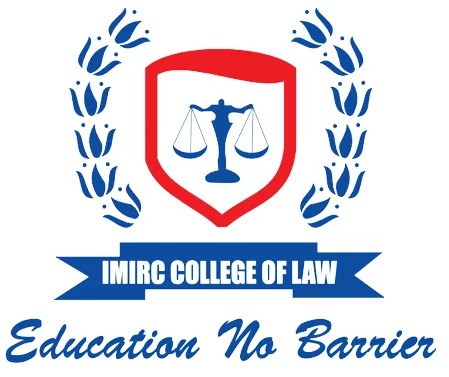AIMS AND OBJECTIVE
Legal Aid Clinics act as a bridge in two ways. First, they connect the abstract concepts of law school with the practicalities of the legal system. Law students gain invaluable experience by working on real cases alongside lawyers. They learn about interviewing clients, navigating legal procedures, and the intricacies of courtroom practice. This hands-on experience solidifies their understanding of the law and prepares them for successful careers.
Secondly, Legal Aid Clinics bridge the gap in access to justice. By providing free legal services to the underprivileged, these clinics ensure that low-income individuals and families have a chance to defend their rights. Law students, under the supervision of practicing attorneys, offer legal advice, help with paperwork, and even represent clients in court. This vital service empowers those who might otherwise be unable to afford legal representation.
ABOUT IMIRC LEGAL AID CENTRE
The Legal Aid Clinic goes beyond being a training ground for law students. It aspires to be a breeding ground for creative solutions in the legal field. Recognizing that legal education can sometimes be divorced from the realities faced by communities, IMIRC College of Law established the Clinic with a focus on innovation and experimentation. This means the Clinic isn’t just about applying existing legal knowledge; it’s about developing new and more effective ways to deliver legal services and legal education itself.
This commitment to fresh thinking benefits two groups. Law students are exposed to cutting-edge approaches to legal practice, preparing them to be more resourceful and adaptable lawyers. At the same time, the community served by the Clinic receives the advantage of these innovative solutions. The Clinic doesn’t offer a one-size-fits-all approach. Instead, it strives to constantly improve how it educates future lawyers and serves the underprivileged.
RESPONSIBILITIES
- Offer pro bono legal counsel and assistance to the underprivileged.
- Organize legal literacy workshops.
- Foster widespread legal awareness within the community.
- Collaborate with the District Legal Services Authority in implementing its programs.
- Participate in Lok Adalat (people’s court) proceedings.
- Develop legal resources in accessible language, including vernacular dialects.
- Produce a minimum of [number] legal literacy pamphlets.
COMPOSITION OF COMMITTEE
| 1. Dr. R.S.Tomar | Chairperson |
| 2. Mr. Shashank Tyagi | Coordinator |
| 3. Mr. Salim Khan | Coordinator |
| 4. Mr. Kanhaiya Lal | Member |
| 5. Ms. Seema Singh | Member |
| 6. Anjali Verma | Member (student) |
| 7. Shivam | Member (student) |
TENURE
The Legal Aid Committee will be formed for a one-year period to oversee the Clinic’s operations. To guarantee the Clinic runs smoothly, the Committee will meet at least twice each term, ensuring consistent communication and collaboration for both student learning and effective legal service delivery.
PROCEDURE
To ensure smooth operation, the Committee will meet at least twice per term. For each meeting, members will receive formal notification beforehand to maximize attendance. Following these meetings, the Committee won’t just talk shop – concrete steps will be taken to implement the agenda items discussed, ensuring decisions translate into real action for both the Clinic’s educational mission and its legal services.

